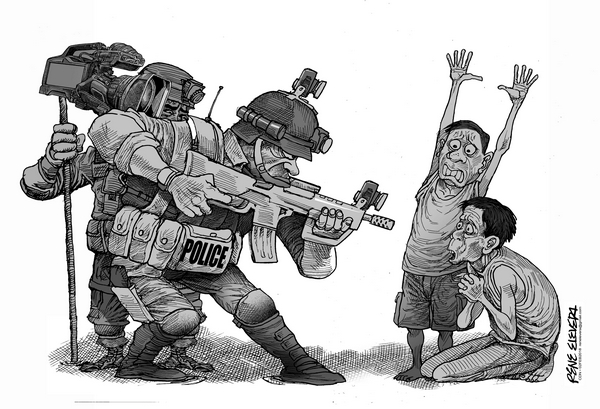Interestingly enough, the resumption of Oplan Tokhang by the Philippine National Police (PNP) in Cebu and other parts of the country last Monday was preceded by two anti-drug operations that merely illustrated just how severe the drug problem remains.
Filipina-Australian Dorotea Moyes had the misfortune of being “left holding the bag” so to speak after she reported to hotel management her suspicions about the bag left to her by a friend of the man whom she met and established a relationship with online.
The bag contained a laptop and what is later found out to be a stash of drugs worth P11 million and police later found out that the man whom Moyes had contacted online may be part of an international drug syndicate that’s coursing drugs through Cebu.
Moyes may have reported the illegal drug stash but that doesn’t clear her of suspicions that she was used as a “drug mule” and the burden to prove that she was an unwitting instrument in an aborted drug delivery in court lies squarely on Moyes’s shoulders.
Her case followed on the heels of a drug bust in Madridejos town, Bantayan Island that resulted in the arrest of teacher Pablito Miro and five students last Friday.
Another drug case involved the arrest of former police officer Antonio Tabug, who stands accused of trying to bribe police with P50,000 in cash in exchange for the release of a friend arrested on drug charges.
These anti-drug operations show that in nearly every level, drugs are being moved and dealt in starting from ordinary workers to unsuspecting persons lured into becoming couriers or “drug mules.”
Set against this backdrop is PNP Director General Rolando dela Rosa’s statement that while Oplan Tokhang won’t be bloodless, it would be less bloody and an exhortation from the Catholic Bishops Conference of the Philippines (CBCP) for the police to avoid bloodshed in conducting Tokhang.
As had been clarified repeatedly by both the PNP leadership and explained through mainstream media, Tokhang usually involves only visits by the police at the houses of drug suspects with the end goal of asking them (hangyo) to surrender peacefully.
It is the operations conducted after Tokhang that usually end up with the drug suspect dead due to “resisting arrest”, a line that had lost its currency with the public who believe rightly or wrongly that the suspect had been summarily executed.
It would take more than daylight Tokhang and body cameras to restore the public’s faith on the police’s public commitment to uphold due process in conducting their anti-drug operations.
Even without dela Rosa saying it, we realize and acknowledge that police operations against drug activities won’t be bloodless yet every effort must be taken to ensure transparency in compliance with the rules of engagement or police procedures in dealing with drug suspects.
Disclaimer: The comments uploaded on this site do not necessarily represent or reflect the views of management and owner of Cebudailynews. We reserve the right to exclude comments that we deem to be inconsistent with our editorial standards.

